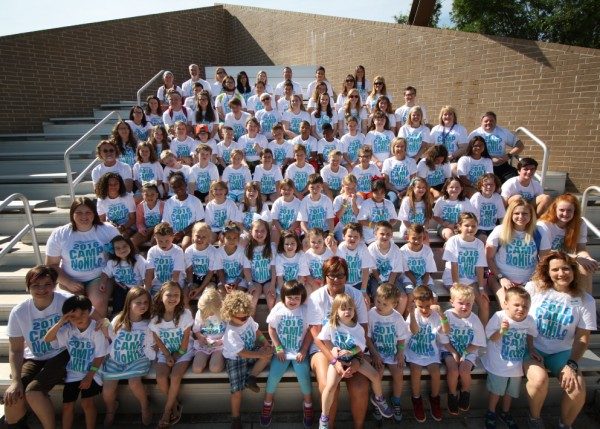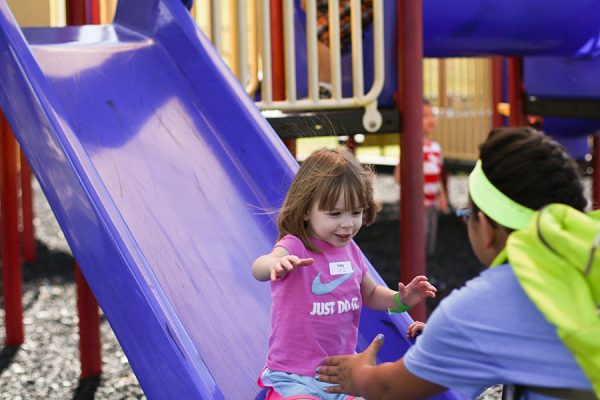Camp NoHiLo 2016
By Maddi Fowlkes, DSOK Summer Intern
 June 6, 2016 was the first day of the 7th annual Camp NoHiLo for children with type 1 diabetes, aged 4-10 years. Of the 60 campers attending Camp NoHiLo, three of them were only 3 years old! This was my first experience being a part of Camp NoHiLo and I could tell walking in that first day that it was going to be something special.
June 6, 2016 was the first day of the 7th annual Camp NoHiLo for children with type 1 diabetes, aged 4-10 years. Of the 60 campers attending Camp NoHiLo, three of them were only 3 years old! This was my first experience being a part of Camp NoHiLo and I could tell walking in that first day that it was going to be something special.
I grew up going to camps, but I had never been a part of a camp for children with type 1 diabetes. My mother has type 1 diabetes, so I have spent my entire life learning bits and pieces about this disease. But I’ve never really seen it from a child’s perspective. This camp is special. Not only do the children get to learn about diabetes, but their parents do as well.
Camp NoHiLo provides an opportunity for children with type 1 diabetes to learn more about their diabetes. They learn about the difference between type 1 and type 2 diabetes, what to do when blood glucose levels are too high or too low, and how food and lots of activity affect glucose levels.
More importantly, campers learn that they are not alone on the journey of type 1 diabetes.
One night after camp had ended, 7 year old camper Barrett, told his mom: “Mom, after two years of camp, I finally realize I’m not the only one who has diabetes and I’m not alone. It feels really good.” This tells us at DSOK that Camp NoHiLo is genuinely impacting the lives of these children.
Not only is the week packed full of fun for everyone involved, but these little campers overcome obstacles during camp! They are challenged to try new and different things they might have been scared to do before. Abigail, age 8, usually uses the same one or two fingers regularly to check her blood glucose. During camp she used three different new fingers!
Dylan, age 6, could not wait to tell everyone he had given himself an insulin injection. This is something he had done a couple of times before, but he was fearful to do it again—until he came to camp!
 These children are sLucy and Luciao inspiring. They keep fighting and do not let diabetes stop them from enjoying and doing the things they love in life.
These children are sLucy and Luciao inspiring. They keep fighting and do not let diabetes stop them from enjoying and doing the things they love in life.
Camp is not only for the campers but for the parents as well. Camp allows for the concerned parent to step out of the daily routine of constantly checking blood sugars and worrying about their child. They can relax for a bit. Parents can find comfort in knowing their child will be well taken care of and loved with so much enthusiasm during the week of camp and beyond.
At Camp NoHiLo, we say, “Come and play where friends are made.” This simple statement is packed with so much meaning, especially when you actually take part in this camp program.
I am currently in college and hope to one day go to medical school and become an Endocrinologist. From my week at Camp NoHiLo I could tell that this camp changes lives. It changed mine and I am honored to have been a part of it.
